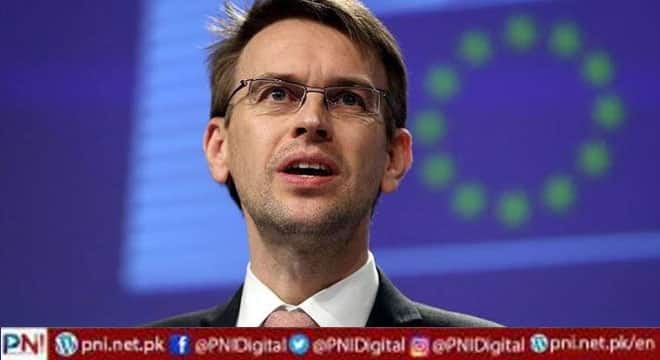BELGRADE, Dec 17 (AA/APP):The EU on Friday expressed concern over a political crisis that have struck Montenegro as tensions rise over a controversial legislation that restricts the president’s powers to form a government.
The legislation, passed on Monday, has “provoked a deep institutional crisis, undermined the functionality of the country’s democratic institutions, and contributed to a slowdown of its accession negotiations,” said European Commission spokesman Peter Stano.
Underlining that the repeated failure in the small Balkan nation to appoint members of the Constitutional Court illustrates the inability to build consensus on reforms, Stano urged support for “stability and functionality of democratic institutions.”
“To progress on EU accession, which is the wish of an overwhelming majority of Montenegro’s citizens, all political actors must support the stability and functionality of democratic institutions, in particular the Constitutional Court, exercise restraint, and avoid further incidents,” he said.
Clashes erupted between protesters and police on Monday as legislators were voting on the law — for the second time — with a narrow majority of 41 votes in favor in the 80-member parliament.
The political crisis between the pro-Western parties on the one hand and pro-Serb and pro-Russian ones on the other has deepened in the past months.
Under the law, the president is obliged to propose a prime minister-designate if the candidate has the majority of the lawmakers in parliament.
If there is no majority, the president has to organize the second round of consultations with political parties and propose another candidate.
The law also enables a majority of lawmakers to sign a petition and propose a prime minister-designate if the president refuses to propose a candidate.
The Constitution says the president has to organize consultations with parliamentary parties and propose a prime minister-designate with the signed support of deputies within 30 days.
Predrag Bulatovic, a lawmaker with the Democratic Front party, said President Milo Djukanovic refused to give the mandate to form the government to the candidate supported by a parliamentary majority and argued that the legislation would solve the political crisis.
Djukanovic still refused to sign the amendment, though, and sent it back to the parliament. The president called for an early general election and described the move as a “constitutional coup attempt.”
The process of forming a new government started after the administration of Prime Minister Dritan Abazovic failed to receive a vote of confidence on Aug. 20 as the political scene in the country descended into crisis.
The government, which stirred controversy with a “fundamental agreement” with Serbian Orthodox Church Patriarch Porphyria to give “official status” to the Serbian Church, fell as a result of the vote in the parliament.
While pro-Serbian parties nominated Miodrag Lekic, the leader of the civic Demos party, to form the government, the president refused to give the mandate to him, saying he did not fulfill the necessary conditions. Djukanovic said early general elections could be held at the beginning of 2023.
Follow the PNI Facebook page for the latest news and updates.









